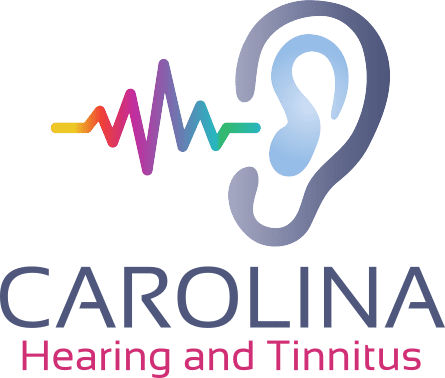Services
Cochlear Implants
Cochlear Implants
If you or a loved one are living with hearing loss and are not receiving enough benefit when using hearing aids, a cochlear implant may be able to help.
What is a Cochlear Implant?
A cochlear implant is a small, complex electronic device that can help to provide a sense of sound to a person who is profoundly deaf or severely hard-of-hearing. The implant consists of an external portion that sits behind the ear and a second portion that is surgically placed under the skin (see figure). An implant has the following parts:
- A microphone, which picks up sound from the environment.
- A speech processor, which selects and arranges sounds picked up by the microphone.
- A transmitter and receiver/stimulator, which receive signals from the speech processor and convert them into electric impulses.
- An electrode array, which is a group of electrodes that collects the impulses from the stimulator and sends them to different regions of the auditory nerve.
An implant does not restore normal hearing. Instead, it can give a deaf person a useful representation of sounds in the environment and help him or her to understand speech.
How Does a Cochlear Implant Work?
A cochlear implant is very different from a hearing aid. Hearing aids amplify sounds so they may be detected by damaged ears. Cochlear implants bypass damaged portions of the ear and directly stimulate the auditory nerve. Signals generated by the implant are sent by way of the auditory nerve to the brain, which recognizes the signals as sound. Hearing through a cochlear implant is different from normal hearing and takes time to learn or relearn. However, it allows many people to recognize warning signals, understand other sounds in the environment, and understand speech in person or over the telephone.
How Does Someone Receive a Cochlear Implant?
Children and adults who are deaf or severely hard-of-hearing can be fitted for cochlear implants. As of December 2019, approximately 736,900 registered devices have been implanted worldwide. In the United States, roughly 118,100 devices have been implanted in adults and 65,000 in children. (Estimates provided by the U.S. Food and Drug Administration [FDA], as reported by cochlear implant manufacturers approved for the U.S. market.)
The FDA first approved cochlear implants in the mid-1980s to treat hearing loss in adults. Since 2020, cochlear implants have been FDA approved for use in eligible children beginning at 9 months of age. For young children who are deaf or severely hard-of-hearing, using a cochlear implant while they are young exposes them to sounds during an optimal period to develop speech and language skills. Research has shown that when children receive a cochlear implant early in life followed by intensive therapy, they often are better able to hear, comprehend sound and music, and speak than their peers who receive implants when they are older. Studies have also shown that eligible children (as young as 9 months of age) who receive a cochlear implant early may develop language skills at a rate comparable to children with normal hearing, and many succeed in mainstream classrooms.
Some adults who have lost all or most of their hearing later in life can also benefit from cochlear implants. They learn to associate the signals from the implant with sounds they remember, including speech, without requiring any visual cues such as those provided by lipreading or sign language.
.
Cochlear Corporation
If you or a loved one are living with hearing loss and are not receiving enough benefit when using hearing aids, a cochlear implant may be able to help. Cochlear implants work differently than hearing aids. Hearing aids help those who have mild to severe hearing loss and have some remaining healthy sensory hair cells in the inner ear that can transmit sound to the brain using amplification. Cochlear implants help those with moderate to profound hearing loss in both ears who are not receiving enough benefit when using hearing aids. They are designed to help you get back the sounds you’ve been missing by giving you the clarity you need to hear better and understand speech, even in noisy situations.
At Cochlear we always start with people in mind, thinking about their needs. Learn more about our mission and story.
Success Stories
These stories can inspire you. They are stories of people who have been exactly where you are, who want to share their stories and inspire hope. They know what you’re going through and want you to know you are not alone.
About This Location
Parking Information
Our office has free parking located directly in front of our building and is wheelchair accessible. After entering our building, you will find Suite 101 A to your right.
Office Hours
Mon: 9:00 A.M. - 5:00 P.M.
Tuesday: 9:00 A.M. - 5:00 P.M.
Wednesday: 9:00 A.M. - 5:00 P.M.
Public Transportation
The Iredell County Area Transportation System offers demand response trips. Another option is Go Transportation LLC which provides a shuttle service when you book ahead. The most convenient option for some might be a ride share service such as Uber or Lyft.
Mooresville
114 Morlake Dr. #101A
Mooresville, NC 28117
704-664-7277
